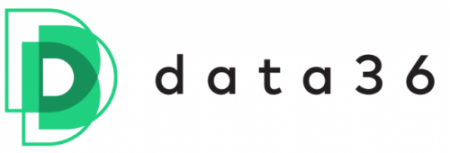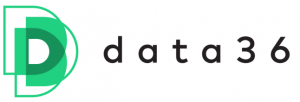Should you negotiate your salary before you get into a junior data scientist role?
To start: yes! You should always negotiate.
Tech companies in particular EXPECT you to negotiate. You can almost always get at least another $5k or 5% increase in base salary—and oftentimes, a lot more.
In this article, I’ll give you a few short recommendations for how to negotiate; however, I would recommend taking a look at this post for a fantastic piece on how to negotiate well.

Before we get started…
This article is part of a five article series called: How to get a job in data science and analytics.
Here are all the articles:
- epsiode #1 — Intro: What is a data analyst/scientist and what skills do you need?
- episode #2 — What do you need to do before you apply? (resume/cover letter/website/GitHub help)
- episode #3 — How to apply and how to prepare for data science job interviews and how to ace the take-home assignment — this article
- episode #4 — Common junior data science job interview questions and how to answer them
- episode #5 — How do you negotiate? Should you negotiate? What is the career trajectory for someone in data science and analytics? — this article
Let’s get into it!
The first step of the negotiation process…
First thing to consider: in most cases, a recruiter will ask you what your salary range is. My recommendation is to not give them a number or a range.
Say something along the lines of “I’m open to any competitive offer.”
If they push you on giving them a number, I would counter with something like “I really don’t have a set range—it really depends on the entire compensation package.”
I get it—this is an awkward conversation. But don’t let an awkward conversation get between you and a 5k/10k/20k jump in salary!
You won’t regret having this awkward conversation, you will regret losing out on thousands of dollars. Ultimately, you want them to give you a number first—if that number is in your range, great, if not, now is the time to tell them that the number isn’t what you’re looking for.
Negotiate! It’s expected.
Now, what about once you actually have an offer?
Remember: it is not selfish or wrong to negotiate—it is expected.
First, aim high so there is room to compromise—and at this point, give them a number and not a range. Explain that you’re really excited about the company and the position, and bring up an example or two about what you’d bring to the company. Even if you don’t have another offer to use in the negotiation—that’s not a problem. Consider saying something simple but effective, like: “I’m really excited about the chance to join Dunder Mifflin—however, I am far along in the process with a few other companies, and an additional $10k would make this decision a lot easier for me.”
Still want more advice? Again, take a look at this post.
Tomi Mester’s story about salary negotiation

Note: this article was written by Peter Scobas — but let me (Tomi Mester) jump in and add my story, too!
When I got my first data science internship(!), it started as an unpaid one. I was a university student and I was really excited to get the opportunity to join a company at all. And I was lucky because I had a very nice manager. So after I got promoted and got my first full-time (paid) junior data role, I didn’t have to negotiate my salary. Not even later. My manager just set ranges that I was very happy with.
Money was never a problem. Again, I was like 22 years old… all I needed was a few hundred bucks to cover my expenses — especially since the company provided a lot of extra compensation. In my full-time position, they covered my medical expenses, breakfast-lunch-dinner was free in the office. Obviously, they gave me a computer. And they even paid my travel expenses… So really, I only needed to pay my rent.
The Junior Data Scientist's First Month
A 100% practical online course. A 6-week simulation of being a junior data scientist at a true-to-life startup.
“Solving real problems, getting real experience – just like in a real data science job.”
The problem: I didn’t learn how to negotiate my salary…
So I never really learned how to negotiate my salary.
This came back and bit me later. When I quit (looking for new challenges) and applied for another job, at the final stage, they asked me my salary expectation… I just answered that my previous manager said this to me:
“We pay you enough — not more and not less — that you won’t have to think about money.”
And so I expect this mentality from them when they make their offer.
They said, okay, they’d offer something that I’ll be happy with.
They made their offer, I accepted it. I started to work, everyone’s happy.
Except that ~9 months later, at a dinner, I accidentally learned that people with my experience in similar data science roles make 20-30% more. So I literally lost ~$10,000 over that 9 month period — just because I was lazy enough not to negotiate my salary.
Well, I asked for a raise and got it very easily…
But the moral of the story: always negotiate your salary at the end of the application process!
Also: if you don’t know what’s a realistic upper limit for what you do, make some research: ask friends, go to glassdoor.com (and similar sites) and be informed about your worth on the job market!
Conclusion
And this is the end of the How to get a job in data science and analytics article series. I hope you enjoyed it and you learned a lot… And most importantly that it’ll help you to get a job.
Remember, if you don’t feel 100% prepared, take a look at the Junior Data Scientist’s First Month course which won’t just teach you the things you’ll do as a junior data scientist but will also boost your confidence during the whole hiring process!
…
Actually, before I wrap this up, I want to discuss one last question.
What is the career trajectory for someone in data science/analytics?
One of the things I really enjoy about data analyst/scientist roles is where they can take you. On one hand, you can continue honing your technical skills and move into even more of a technical data science role. Or, you can move from being a data analyst/scientist to a manager position.
At my current company, a former data science analyst took on more and more technical work and ultimately transitioned to an engineering role, while a different former data science analyst transitioned to a leadership position on our data science and analytics team.
So keep in mind, this is just the very first step of the journey!
- If you want to learn more about how to become a data scientist, take Tomi Mester’s 50-minute video course: How to Become a Data Scientist. (It’s free!)
- Also check out the 6-week online course: The Junior Data Scientist’s First Month video course.
Cheers,
Peter Scobas

